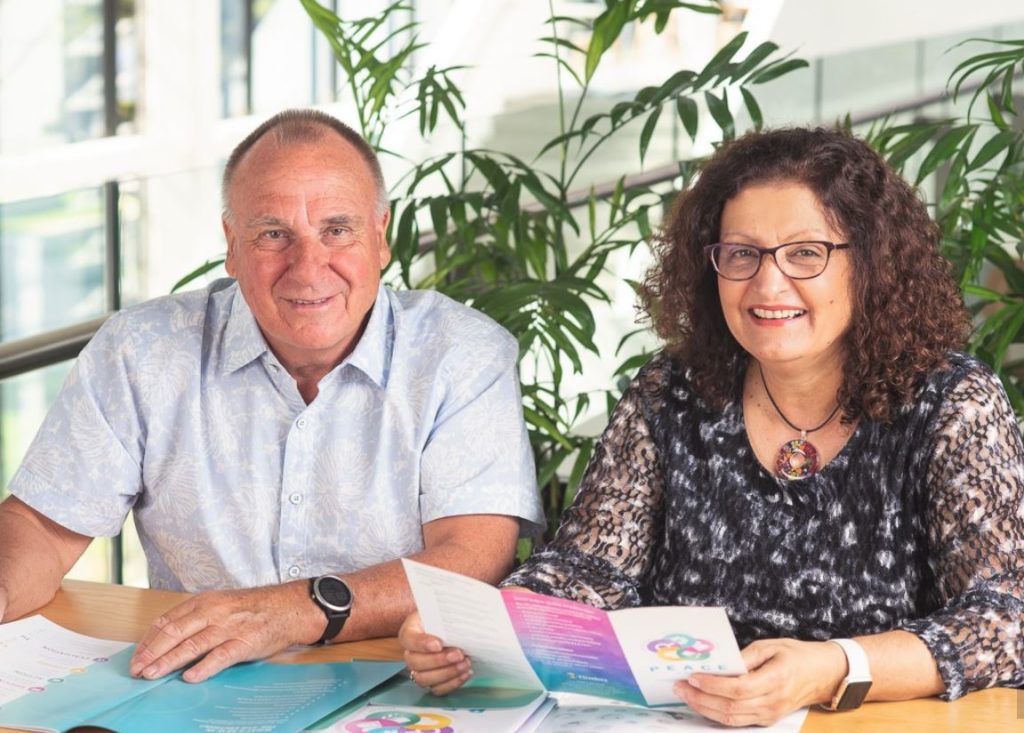The rollout of a short online course focusing on young people's mental health and wellbeing in South Australian primary schools is giving trainee teachers and other educators important support in helping students manage their behaviour, say Flinders University child development experts.
Results from a pilot study of the 'Big Talks for Little People' module last year confirmed its usefulness in promoting wellbeing and easing anxiety among children, who are encouraged to speak about feelings and emotions. It also features practical teacher information sheets, giving educators knowledge and confidence in recognising and promoting children's mental health in the classroom.
The program, which is expanding to nine more metropolitan and country schools and 10 selected Out of School Hours Care (OSHC) centres this year, is developed for use in the Australian Curriculum and includes short digital animations and multimedia games and activities in its six-class format.
Funded by the Breakthrough Mental Health Research Foundation and Little Heroes Foundation, the program has been described by teachers as "a modernised wellbeing program that's relevant with what kids are going through at the moment," says one of the developers, Flinders University researcher and child psychologist Professor Phillip Slee, who continues to assess results so far.
"Teachers, including trainee teachers on placement, said it was clear and easy to use the practical teaching resources and 'the children found it engaging,' and 'has digital resources that other programs do not which kids enjoyed and found exciting and engaging,' our feedback found."

"It was a great resource to spark conversation about mental wellbeing in the classroom," says Flinders University education expert Dr Grace Skrzypiec, who also is involved in developing the project.
"We must provide early intervention strategies and prevention that provides children with the tools to ensure their wellbeing and resilience as they get older.
"Of significance is that children develop an understanding of now only their own feelings but how others might be feeling as well."
Standardised questionnaires completed by 238 primary school students from five schools who took part last year indicated a significant improvement in their emotional states and wellbeing and fall in anxiety, with children being told "You are never too young to talk about mental health, and how you're feeling".
In an innovative adaption of the primary school program supported by funding from Breakthrough Mental Health Research Foundation, Little Heroes Foundation and Happy Haven OHSC, 10 centres have run the the program in terms 2 and 3 this year.
Preliminary findings ''have highlighted its effectiveness in promoting awareness of young students' mental health,''says Associate Professor Shane Pill of Flinders University
Flinders University speech pathology graduate Doniya Matthews, who works at the Mount Barker Primary School Happy Haven OHSC, says the program gives students awareness about mental health and their social and emotional wellbeing.
"It's very helpful in opening conversations about these topics and giving them insights and and also provides a way to talk about issues or challenges that they might be facing around self-confidence, resilience etc," she says.
In consultation with Mr Nicholas Smith, Director of Happy Haven OSCH the new 'Big Talks for Little People' OSHC module features:
- Six 35-40 minute sessions aligned with the Australian Curriculum (General Capabilities).
- Short digital animations for each lesson (5-6 animations) focusing on children's mental health issues, e.g., anxiety.
- Eight education information sheets on topics such as social and emotional learning, wellbeing, bullying, etc.
The Flinders University team is now developing a set of flexible lessons suitable for middle school students. The evidence-based mental health and wellbeing program is also being adapted for use in sporting clubs and for children in disaster areas, including after bushfire, flood or drought.






